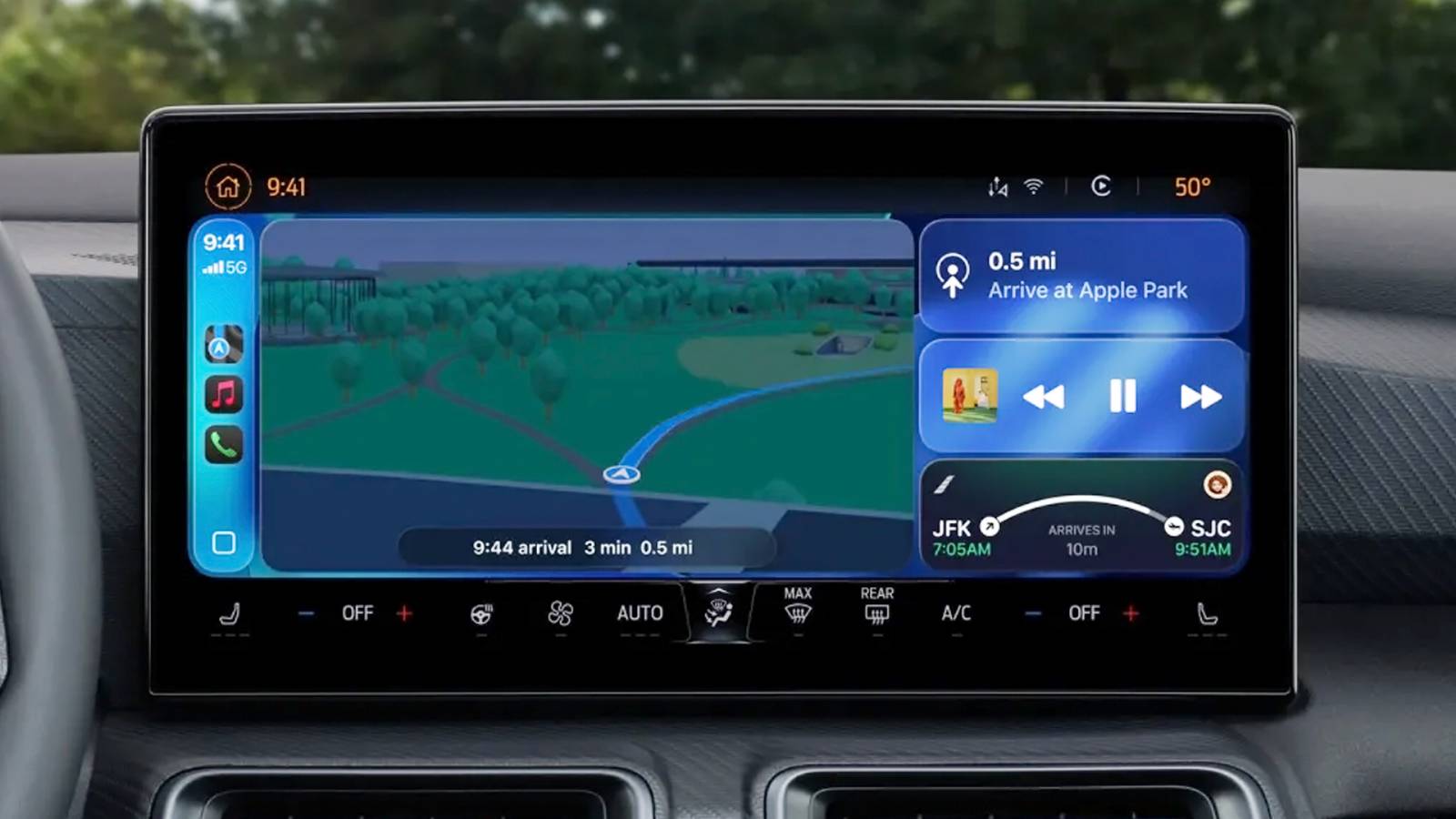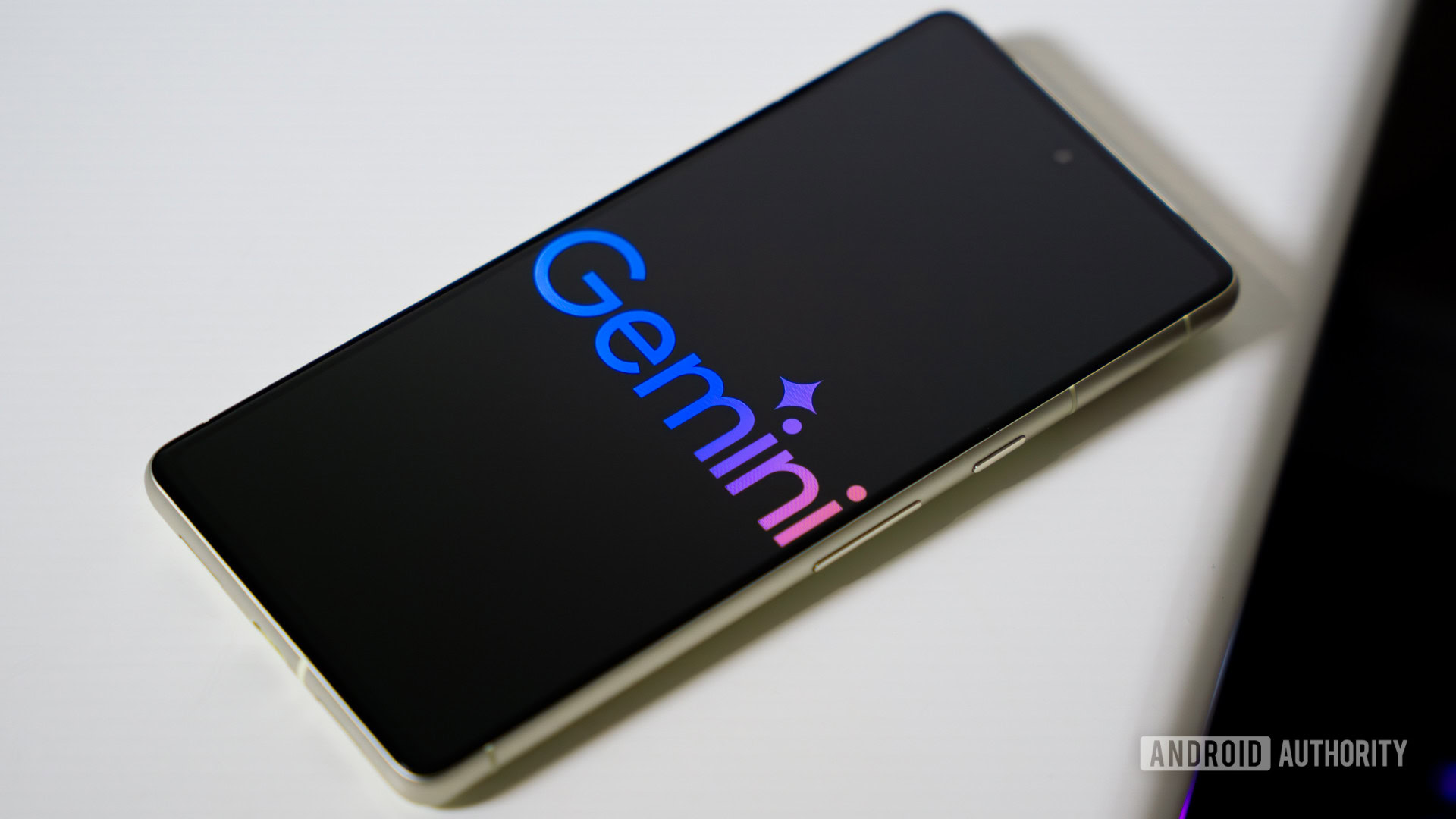Summary
- Carmakers are moving away from Apple CarPlay and Android Auto toward in-house systems for control.
- Android Automotive runs in the car without a phone, letting automakers integrate apps and vehicle data.
- Both big tech and automakers harvest and sell driving data; expect subscriptions and privacy trade-offs.
Carmakers are starting to move away from Apple CarPlay and Android Auto, with GM the latest to shift to its own interface, while Rivian and Tesla have never embraced either. To understand why this is happening, you have to understand the difference between Apple CarPlay, Android Auto, and the confusingly named Android Automotive.
Apple CarPlay and Android Auto are among the most desirable features in new cars, and many buyers will consider their availability as a determining factor in the buying decision. The reason is that these systems mirror your phone on the car’s infotainment in familiar interfaces, and nearly 60% of US drivers use Apple phones, and over 40% Android. Both systems can only work when connected to your phone, either with a USB connection, or via BlueTooth.
Android Automotive is a freestanding car-focused extension of the Android Open Source Project, and it adds features that are specific to your car. It does not require a phone connection to work. The carmaker installs the software during manufacture, usually with their own interface on the screen. Android Automotive provides an interface that connects the driver with the car, and also provides Google-based apps like maps, music, messaging, and so on. It is the car that is connected to the internet, not your phone.
The battle for who controls your data
Big tech vs carmakers
When you drive using CarPlay or Auto, you generate a constant stream of data, telling Apple or Android where you are, how fast you are going, what music you are listening to, where you stop for gas or food, and so on. Big tech collects this data and uses it to build a picture of who you are, and it can adjust its algorithms accordingly. Individual data is financially insignificant — but collectively, it’s gold.
With Android Automotive, carmakers have far more control over the data and how it’s used, and they have more say on how this software is integrated with the vehicle’s systems. The looming threat of Apple CarPlay Ultra, which embeds itself firmly between the driver and car, probably ignited with battle between big tech and carmakers.
Carmakers and data
Carmakers hate the idea of big tech getting all the valuable data, while they lose out. They’ll tell you they can use your data to better understand how you interact with your car, and make your driving experience better. They often do this, for example, with intelligent EV routing that will help the driver to match the battery charge and range remaining to ideal available charging stations.
GM’s infotainment also integrates its Super Cruise hands-free feature, using Google Maps to show designated Super Cruise routes, and how much of the route will be hands-free.
So big tech is bad and carmakers are good?
Nope, they’re all money-grubbers, but the reality is complicated
Better integration between the driver, the car, and the driving environment will certainly help carmakers to improve the way their cars work, and this will in turn help them sell more cars and make bigger profits. There is nothing wrong with this — if GM or any other carmaker can better understand how you drive and what you do during your drive, they can improve the way their cars work in the future.
Selling your data anonymously
Data is worth a lot of money, and drivers generate massive amounts of data when they drive. No-one expects carmakers to just discard this valuable data. They don’t, and most of the time, your identity is stripped from your data,and then packaged and sold as vast data sets. This is mostly harmless, and everybody does it. The problem comes when they collect and sell your individual data.
Selling your specific data
Most entities that collect your data sell it, including most carmakers. But the most egregious example of this practice was probably GM’s OnStar service and its Smart Driver app. This was pitched as a sort of real-time driving coach that would improve your driving, like a game where you could rack up higher levels as your driving improved. All fun and games, until users realized that GM was tracking driver behavior and selling this data to third parties like insurers, which sometimes resulted in higher premiums for spirited driving styles.
GM was not the only carmaker to do this, and has since canceled this app, but you can see where this is going. This practice is almost as bad as taking something free and making it paid-for.
Subscription services
Subscription services are the gold standard of squeezing every last dollar out of the consumer. BMW infamously demanded a subscription to activate the heated seats already installed in its cars, and other carmakers charged a fee for unlocking extra performance or enabling 5G connectivity.
The fear is that carmakers will start charging a subscription for features that were always free on phone mirroring such as CarPlay and Auto, including navigation, connected services, and entertainment.
The bottom line
Big tech and carmakers both collect your data in exchange for offering powerful apps and an enhanced driving experience. As long as you’re aware that your data is being used — and potentially sold — and you maintain some oversight of how that impacts you, the relationship doesn’t have to be parasitic. It can be symbiotic, where both you and the companies involved benefit.








